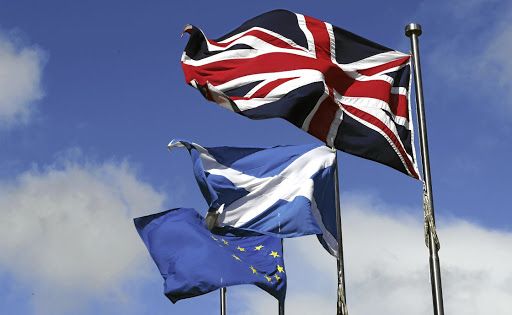
In all the talk about what the “people” want, it’s often forgotten that Britain is a representative democracy. That means members of parliament are not mere delegates and their job is to independently make informed decisions on behalf of their constituencies. They are not obliged to blindly follow what voters tell them. Of course, if those voters feel aggrieved, they can vote them out at the next election.
So it’s a complete misnomer for Prime Minister Theresa May to argue that legislators rejecting her flawed Brexit deal with the EU — possibly delaying and even blocking the exit from the EU — would amount to a betrayal of voters who chose by a 52% to 48% margin to leave the EU, the country’s largest trading partner.
The opposite, in fact, is true. Legislators have a duty to consider the public interest and act accordingly.
This is not to say there is a politically easy way out of the situation in which the country finds itself.
There’s no denying that many of the deprived areas that are likely to suffer the most from Brexit are some of the most passionate proponents of Brexit, even if it means crashing out without a deal that would at least smooth the transition and provide a degree of certainty for businesses.
After years of deindustrialisation and being neglected
by London-centric elites, a big slice of the population in these areas saw
Brexit as their chance to be heard. The relative economic deprivation also
meant they felt they had nothing to lose, so were receptive when warnings of
economic chaos were dismissed as fear-mongering. Lost on them is the irony of
the Brexit project being funded and championed by members of the very elite
they are rebelling against.
This could go some way to explaining the change in May’s reasoning. After
initially saying the choice was between her Brexit deal, hated by both leavers
and remainers, and a chaotic break with the EU, now she claims not supporting
her deal may mean no Brexit at all.
It’s most likely that the deal, hated by both sides because it still leaves the UK pretty much tied to EU regulations while giving up its seat at the rule-making table, will be rejected by legislators on Tuesday. The opposition Labour Party may follow this with a vote of no-confidence in the government, hoping to force an election.
Their leader Jeremy Corbyn believes he could win and then negotiate a better deal with the EU, despite the latter having said no such option is available. In any case, Labour has been so woeful that it could lose such a vote. Even if it did win and the EU was willing to talk, with just over two months before the UK is set to crash out, there isn’t enough time to negotiate a new pact.
The only thing we can be sure of is that more chaos is in store, and the economic numbers will continue to move in the wrong direction.
Very few voters remember that when the UK joined the EU in 1973 it was one of the worst-performing economies in the region, and was the “sick man” of Europe long before that term became associated with a Germany that was grappling with the cost of reunification in the late 1990s and early 2000s.
By the time the Brexit vote happened in 2016, the UK was the fastest-growing G7 economy and well on track to being Europe’s richest. Since the vote it has slipped to the bottom of the pile.
That’s before Brexit has even happened, and the Bank of England has warned that a departure with no deal could cause the economy to shrink by as much as 8%.
With Britain being one of SA’s most important trading partners and source of investment and tourism, we can only hope the UK in time will extricate itself from the corner into which it has painted itself. In the short term, however, prospects are bleak.

